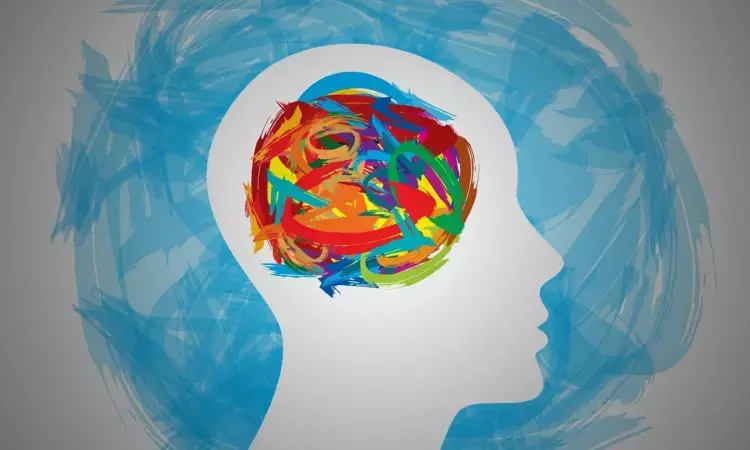- Home
- Medical news & Guidelines
- Anesthesiology
- Cardiology and CTVS
- Critical Care
- Dentistry
- Dermatology
- Diabetes and Endocrinology
- ENT
- Gastroenterology
- Medicine
- Nephrology
- Neurology
- Obstretics-Gynaecology
- Oncology
- Ophthalmology
- Orthopaedics
- Pediatrics-Neonatology
- Psychiatry
- Pulmonology
- Radiology
- Surgery
- Urology
- Laboratory Medicine
- Diet
- Nursing
- Paramedical
- Physiotherapy
- Health news
- Fact Check
- Bone Health Fact Check
- Brain Health Fact Check
- Cancer Related Fact Check
- Child Care Fact Check
- Dental and oral health fact check
- Diabetes and metabolic health fact check
- Diet and Nutrition Fact Check
- Eye and ENT Care Fact Check
- Fitness fact check
- Gut health fact check
- Heart health fact check
- Kidney health fact check
- Medical education fact check
- Men's health fact check
- Respiratory fact check
- Skin and hair care fact check
- Vaccine and Immunization fact check
- Women's health fact check
- AYUSH
- State News
- Andaman and Nicobar Islands
- Andhra Pradesh
- Arunachal Pradesh
- Assam
- Bihar
- Chandigarh
- Chattisgarh
- Dadra and Nagar Haveli
- Daman and Diu
- Delhi
- Goa
- Gujarat
- Haryana
- Himachal Pradesh
- Jammu & Kashmir
- Jharkhand
- Karnataka
- Kerala
- Ladakh
- Lakshadweep
- Madhya Pradesh
- Maharashtra
- Manipur
- Meghalaya
- Mizoram
- Nagaland
- Odisha
- Puducherry
- Punjab
- Rajasthan
- Sikkim
- Tamil Nadu
- Telangana
- Tripura
- Uttar Pradesh
- Uttrakhand
- West Bengal
- Medical Education
- Industry
Vitamin D fails to improve mental health in early psychosis: DFEND trial

UK: Results from a recent study suggest that vitamin D does not improve 6-month mental or physical health outcomes in patients with early psychosis. However, the researchers suggest that public health strategies, while developing population-wide interventions, should consider the high prevalence of vitamin D deficiency and insufficiency in this study population. The study was published in the JAMA Network Open on December 28, 2021.
Patients with psychotic disorders are at an increased risk of vitamin D deficiency. This is evident during first-episode psychosis (FEP) and is related to unfavorable mental and physical health outcomes. Fiona Gaughran, Institute of Psychiatry, Psychology, and Neuroscience, King's College London, London, UK, and colleagues aimed to examine whether vitamin D supplementation contributes to improved clinical outcomes in FEP in the DFEND --a multisite, double-blind, placebo-controlled, parallel-group randomized clinical trial from the UK.
The trial examined adults aged 18 to 65 years of age within 3 years of a first presentation with a functional psychotic disorder who had no contraindication to vitamin D supplementation. 2136 were assessed for eligibility, 835 were approached, 686 declined participation or were excluded. 149 were randomized (monthly augmentation with 120 000 IU of cholecalciferol or placebo) and 104 were followed at 6 months. The participants were recruited from January 19, 2016, to June 14, 2019, and the final follow-up (after the last dose) was completed on December 20, 2019.
The study recruited participants from January 19, 2016, to June 14, 2019, with the final follow-up (after the last dose) completed on December 20, 2019.
The primary outcome was the total Positive and Negative Syndrome Scale (PANSS) score at 6 months.
Secondary outcomes included total PANSS score at 3 months; PANSS positive, negative, and general psychopathology subscale scores at 3 and 6 months; Calgary Depression Scale score, waist circumference, body mass index, and glycated hemoglobin, total cholesterol, C-reactive protein, and vitamin D concentrations at 6 months; Global Assessment of Function scores (for symptoms and disability; and planned sensitivity analysis in those with insufficient vitamin D levels at baseline.
Based on the study, the researchers found the following:
- No differences were observed in the intention-to-treat analysis in the primary outcome, total PANSS score at 6 months (mean difference, 3.57), or the secondary outcomes at 3 and 6 months (PANSS positive subscore: mean difference, −0.98 at 3 months; mean difference, 0.68 at 6 months; PANSS negative subscore: mean difference, 0.68 at 3 months; mean difference, 1.56 at 6 months; and general psychopathology subscore: mean difference, −2.09 at 3 months; mean difference, 1.31 at 6 months).
- There also were no significant differences in the Global Assessment of Function symptom score (mean difference, 0.02); Global Assessment of Function disability score (mean difference, −0.01), or Calgary Depression Scale score (mean difference, −0.39) at 6 months.
- Vitamin D levels were very low in the study group, especially in Black participants and those who identified as another minoritized racial and ethnic group, 57 of 61 (93.4%) of whom had insufficient vitamin D.
- The treatment was safe and led to a significant increase in 25-hydroxyvitamin D concentrations.
"The results showed no association between vitamin D supplementation and mental health or metabolic outcomes at 6 months," wrote the authors."This suggests that the group would benefit from active consideration in future population health strategies as few patients with FEP were vitamin D replete."
Reference:
Gaughran F, Stringer D, Wojewodka G, et al. Effect of Vitamin D Supplementation on Outcomes in People With Early Psychosis: The DFEND Randomized Clinical Trial. JAMA Netw Open. 2021;4(12):e2140858. doi:10.1001/jamanetworkopen.2021.40858.
Dr Kamal Kant Kohli-MBBS, DTCD- a chest specialist with more than 30 years of practice and a flair for writing clinical articles, Dr Kamal Kant Kohli joined Medical Dialogues as a Chief Editor of Medical News. Besides writing articles, as an editor, he proofreads and verifies all the medical content published on Medical Dialogues including those coming from journals, studies,medical conferences,guidelines etc. Email: drkohli@medicaldialogues.in. Contact no. 011-43720751


